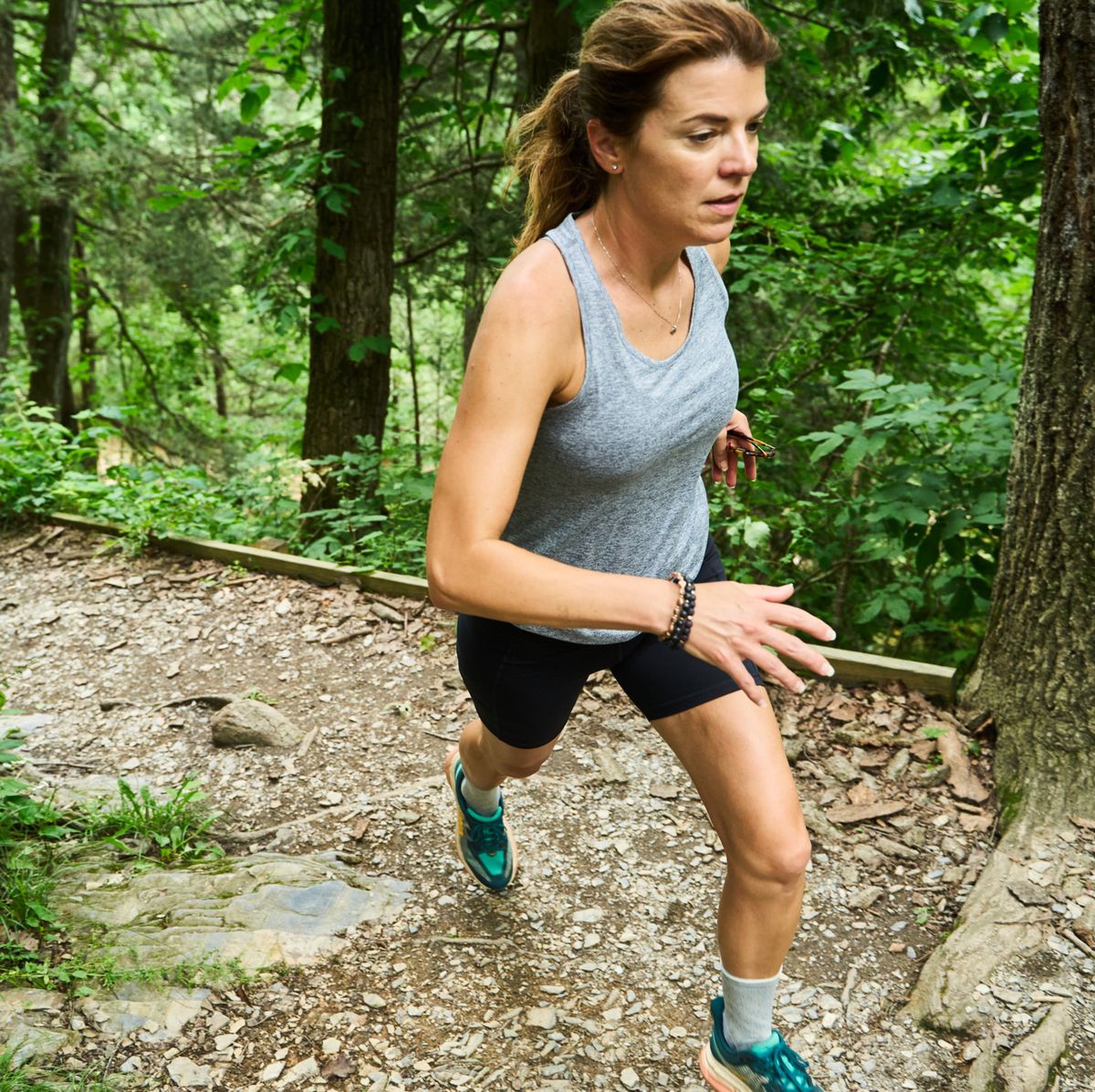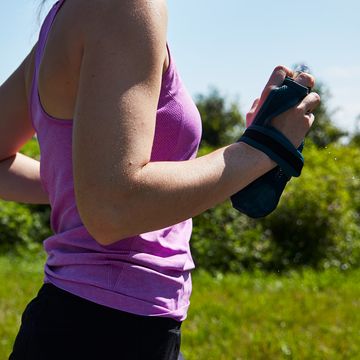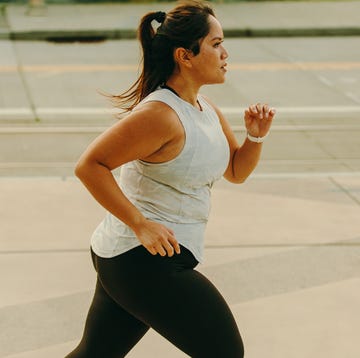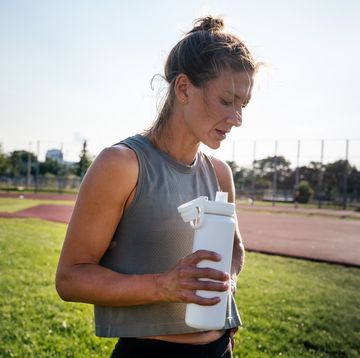Over the past decade, research has pointed to a breadth of functions affected by the beneficial bacteria in your digestive system—a collection known as the gut microbiome. Studies have linked a happy microbiome to lower risk of dementia, depression, insomnia, and even athletic performance.
Research also details how easily the microbiome can tip out of balance, due to factors like stress, poor sleep, antibiotic use, and ultra processed foods. One more to add to that list, according to a new study in the journal Temperature, is exercising in hot weather.
Looking at variables such as duration of outdoor exercise and gastrointestinal symptoms, researcher found that as core body temperature increased, so did the risk of gut damage and inflammation. Once the body reaches 102 degrees Fahrenheit, researchers concluded, it can kick off a condition called exercise-induced gastrointestinal syndrome, which can cause bacteria to leak from the gut into the bloodstream. That may lead to symptoms like nausea, vomiting, and diarrhea.
More From Runner's World

Although it’s not always possible to avoid heat and humidity—especially if they occur on a race day—there are some strategies for minimizing their influence on your gut health. Here are some tips to consider.
The Best Ways to Avoid Gut Issues During Hot Runs
Change Your Schedule
Even if you’ve been a runner for years—maybe decades—heat and humidity can be tough on the body in ways you may not expect, according to Ali Mesiwala, M.D., neurosurgeon and sports specialist at DISC Sports and Spine Center in Newport Beach, California. That’s because of the way your natural cooling system might fall short.
“Normally, your body sweats when exercising, and the evaporation of sweat cools the body down,” he tells Runner’s World. “In hot and humid environments, this cooling mechanism doesn’t work well.”
There are two strategies that can help, he adds: Schedule your run for earlier or later in the day when heat is less of an issue, and take more time to acclimate to exercising in the heat. For the latter, that might mean shorter runs done outdoors in order to condition all parts of your body, including your gut, to higher temperatures and more humidity.
Switch Up Your Diet
In the Temperature study, researchers noted they are currently assessing nutrition strategies that can help maintain blood flow around the gut during exposure to heat stress. Although that research is in progress, they do mention the potential impact of a high-FODMAP (fermentable oligosaccharide, disaccharide, monosaccharide, and polyol) diet.
Foods high in FODMAPs—more generally known as fermentable short-chain carbs—include many types of legumes, grains like wheat and rye, dairy products containing lactose, fruits high in fructose, some vegetables like onions, dried fruits, and some nuts like cashews and pistachios.
In general, these foods are poorly digested and absorbed, which is why experts advise those with gastrointestinal issues like irritable bowel syndrome follow a low-FODMAP style of eating.
However, for those without gut issues, focusing on the other end of the spectrum could be promising for improving digestive blood flow thanks to better support of digestive bacteria, the Temperature researchers suggest. That’s because high-FODMAP foods nourish the end of your intestine, where most gut bacteria live, and those bacteria uses these carbs for fuel. When the bacteria fuels with these carbs, it can improve blood flow, which contributes to better temperature regulation throughout the body, the researchers report.
A research review in the journal Microorganisms looking at both low and high FODMAP approaches found that the latter was much better at increasing the diversity of gut bacteria, which is an important part of maintaining a healthy microbiome (and keeping you from running to the bathroom).
One approach runners may want to consider is switching between low and high FODMAP styles of eating, said Justin Roberts, Ph.D., associate professor in nutritional physiology at the Cambridge Centre for Sport and Exercise Sciences at Anglia Ruskin University in the U.K. He tells Runner’s World that low-FODMAP eating a few days before a race can help reduce the risk of having GI symptoms like cramping or bowel urgency along the route. During training, high-FODMAP choices can provide the necessary carbohydrate and calorie levels for endurance, he adds.
“Like so much in running, it’s helpful to play around with variables like these to see what works best for you,” says Roberts. “Switching between low and high FODMAP foods in short cycles may be preferable to a sustained focus on just one of those.”
Pay Attention
No matter how you choose to test out different fuel options for better gastrointestinal health and better cooling, the overall goal should always be: Listen to your body.
“If you feel like something is off or wrong when you’re running, and it’s hot outside, pay attention to that instead of pushing through,” says Casey Batten, M.D., director of primary care sports medicine at Cedars-Sinai Kerlan-Jobe Institute in Los Angeles, and lead primary care sports medicine physician for the Los Angeles Rams. “Signs of overheating usually start in a subtle way, like feeling that you’re not performing as well or that you’re a little weaker or more tired than usual.” That can include gut issues like nausea, bloating, excessive gas, or urgency, he tells Runner’s World.
Everyone has off days and those not-so-great running sessions. But if that starts to pivot into symptoms like headache, clammy skin, and lightheadedness, then it’s time to dial it back. At that point, find a way to cool down, such as getting to a shaded location or in air conditioning, splashing cold water on your face, and taking frequent sips of water or a sports drink.
Staying aware of your digestive symptoms and other indications of overheating can not only make for a happier belly, it can also prevent more serious problems like heat exhaustion.
Elizabeth Millard is a freelance writer focusing on health, wellness, fitness, and food.












